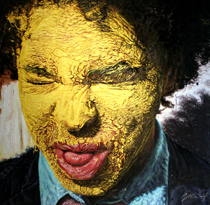Done With Slavery: The Black Fact in Montreal, 1760-1840
By Frank Mackey
McGill-Queen’s UP, 2001
568 pp. $49.95
A few years ago, a prominent, Canadian statistician and I debated whether there were slaves in colonial Canada and whether their lot was hard – or as hard as it was for African-American slaves. Our disagreement was so vehement that our parley became a shouting match. One reason for the aroused passion and raised pitch was that we were speaking in the U.S. I suspect that my interlocutor wanted to preserve a “lily-white†image of Canada, while I wanted to show a more “truthful†one.
I recall this incident because Frank Mackey’s 600-page, too-small-print opus, Done With Slavery: The Black Fact in Montreal, 1760-1840, could also provoke a scholarly row or two, despite his exhaustive—and exhausting—scrutiny of slaveholding and free-black Montréal over the 80-year-span of his study. Mackey acknowledges that a “Eurocentric†bias in Canadian culture has dominated historiography, so blacks are left out of accounts of just about everything. His response to this absence, at least in terms of post-British Conquest Montréal, is to follow the lead of historian Jim Hornby, who, in Black Islanders (1991), by scouring trial records, was able to establish a history of the Prince Edward Island Africadian community.
Mackey sifts through court cases, but also newspapers, diaries, legislative records, and the like (including reading between the lines of a novel or two), to discover the significant personages, slaves and ex-slaves, free(d) men and women, rogues and rascals, entrepreneurs and heroes, to ascertain what their lived experiences can tell us now about what life was like for blacks – slave and free – in colonial Montréal. This study of the records pays off; we get to know roughly a couple dozen Black Montrealers and their families and friends in microscopic and cinematic detail.
But is it possible to talk about “Canadian†slavery when there were black slaves in only a few colonies, none of which could have anticipated the creation of Canada in 1867? For Mackey, these difficulties suggest that one cannot discuss a “Canadian†slavery or racist past because the nation as yet did not exist. However, he himself hits on a solution to this conundrum, and that is to focus on one “colony†– New France or “Canada†or Lower Canada or Québec, and on one city, Montréal. Yet, I would say that one can talk about “colonial†Canada, and, in a sense, Mackey does, going so far as to say, for instance, “To argue that blacks were confined to the lowest levels of the labour pool is to oversimplifyâ€: His statement is not limited to the blacks of colonial Québec, but is meant to apply broadly. Mackey is most annoyed by the statement that slavery did not end in colonial Québec until the British Parliament voted its abolition in 1834. He argues that the practice “waned†in Québec by 1800. He really should have consulted The History of Nova Scotia (1829), wherein Judge Thomas Chandler Haliburton points out that slavery was legal, but not practical or advisable.
True: New France was not Nova Scotia – or New Brunswick, but it seems from Mackey’s own evidence that the virtual end of slavery in colonial Québec followed the pattern that unfolded in the Maritimes: a quiet, judicial nullification that did not go unnoticed by either slaves or their masters. However, this does not mean, as Mackey insists, that slavery was no longer “legal.†It remained “legal,†just not enforced. It was not dead, but a dead letter – until the British Act of Abolition finally “killed it dead†(to quote an old Raid, insecticide commercial). Mackey casts doubt on previous counts that number black slaves in New France in the low thousands. He’s right that it’s likely lower, once one notes that neither “black†nor “slave†were definitive categories, and also how easily names were misspelled or falsely assigned. Still, his own count of “at most about 400 black slaves†over forty years, in Montréal alone, is only an educated guess.
Although Mackey deserves kudos for his large tome, for unearthing facts and figures – persons – who deserve our fresh and concentrated attention, his ambition to overthrow previous assessments finds him overreaching. Even so, more scholars must show such reach, even if some matters must escape our grasp.






Hi Professor Clarke,
It’s been a long time since Modern Canadian Poetry! I wanted to ask you a question about your opening line- perhaps it’s more about defining mystical and intellectual from a poetic perspective-
How do you define the poetry of Rumi, Hafez and other sufi poets? They defy the ‘intellectual’ term– would you call them ‘mystical’ or ‘sentimental’- or are they accessible enough to not be defined as either ‘intellectual’ or ‘mystical’, despite being rooted in a mystical tradition?
Hope you’re doing really well!